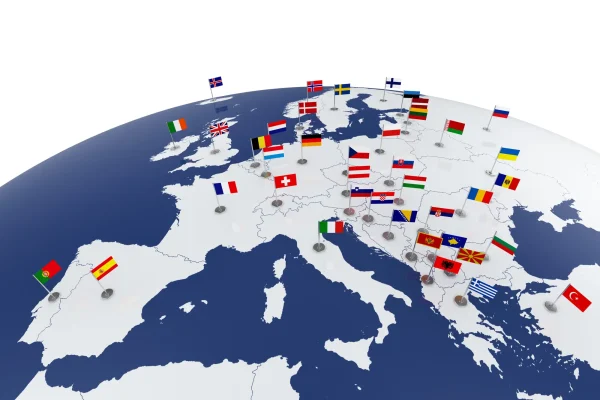
In the decade since the 2015 refugee crisis, Europe has undergone a political and cultural transformation. What began as a humanitarian emergency has triggered a continent-wide identity reckoning, increasingly shaped by the revival of Romantic nationalism.
More than one million asylum seekers fleeing war and persecution from countries like Syria, Afghanistan, and Sudan arrived in Europe in 2015. Their presence tested not only border control mechanisms, but also the very fabric of European identity. In response, many leaders turned inward; reviving a political language steeped in nostalgia, myth, and cultural purity.
This is not new. Romanticism, born in 18th-century Europe, was less a gentle artistic trend than a cultural revolt – an emotional backlash against the cool logic of Enlightenment rationalism. It exalted emotion, tradition, and national spirit. German philosopher Johann Gottfried Herder called it the Volksgeist: the unique “spirit of the people,” rooted in shared language, land, and memory.
That same spirit now animates Europe’s populist right.
In Italy, Prime Minister Giorgia Meloni has fused politics with cultural symbolism. Her declaration, “I am a woman, I am a mother, I am Italian, I am Christian”, isn’t just identity politics. It’s Romantic nationalism, reframed. Meloni chairs the European Conservatives and Reformists (ECR) group, which surged in the 2024 EU elections, pushing to reassert “Europe’s roots” and curb migration.
In the Netherlands, Geert Wilders’ Party for Freedom (PVV) won the 2023 elections and wielded major influence in coalition politics. Wilders had pushed for a total ban on asylum applications and the deportation of 60,000 Syrians. Despite significant popularity, Wilders withdrew support from the Dutch Prime Minister, Dick Schoof’s right-wing party in June, after spats over his strict anti-asylum policies.
In Hungary, Prime Minister Viktor Orbán continues to institutionalise exclusion. His 2018 “Stop Soros” law, which criminalised aid to asylum seekers, has become a model for hardliners. Orbán recently denounced the 2024 EU Migration Pact on X, stating “The #MigrationPact is another coffin in the nail of the European Union”, doubling down on his vision of a homogenous Hungarian nation.
And in France, while Marine Le Pen has stepped back, her protégé Jordan Bardella now leads the far-right National Rally, which topped the French vote in the 2024 EU elections. Bardella invokes La France Profonde – a pastoral, idealised France untouched by immigration or multiculturalism. Its Romanticism repurposed as border policy.
Across the continent, this aesthetic is gaining traction. Churches, farmland, and national folklore are reappearing in political messaging, not as art, but as moral boundaries. Migration is no longer framed as a policy issue, but as an existential threat to a shared past. The EU’s fragile post-war ideal of solidarity is being steadily replaced by “Fortress Europe.”
This cultural shift coincides with material changes. EU military spending has spiked. Deals outsourcing border control to North African nations have multiplied. As leaders court voters, migrants are recast not as people, but as symbols: of instability, of moral decline, of lost sovereignty.
Importantly, the rise of Romantic nationalism cannot be separated from the real socio-economic strains that large-scale migration has placed on certain communities. While refugees are not inherently criminal, concentrated poverty, poor integration, and strained welfare systems have in some cases contributed to spikes in crime and social tension. These realities – often ignored in liberal discourse – have fuelled public anxiety and made the narrative of cultural decline more convincing. For many Europeans, the fear is not purely imagined; it stems from a sense of dislocation and insecurity, which Romantic nationalism powerfully exploits.
And yet, this Romantic reflex poses danger. Nationalism’s poetic mask hides a hard reality: exclusion, division, and a weakening of collective European values. The choice now facing Europe is not just political, but cultural. If the continent is to endure as both a moral and democratic project, it must restructure its asylum policies – not toward exclusion, but toward coordinated, humane, and sustainable solutions. Europe has changed, yes. But the answer is not retreat. It is responsibility.
Written by Bree Benbow
Views: 17
